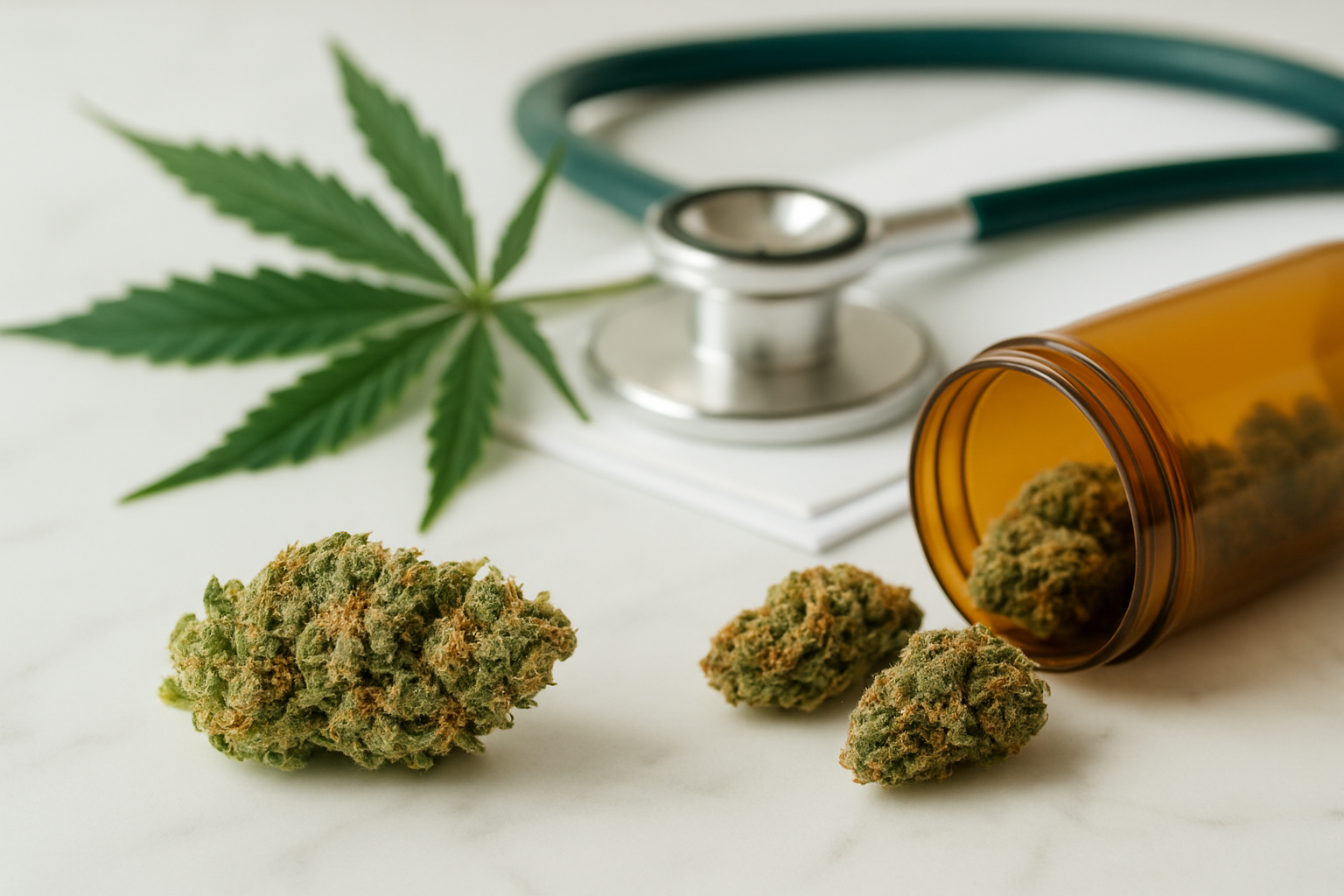Chronic pain is a persistent condition that affects millions of people globally, significantly impacting daily life and emotional well-being. While pharmaceutical drugs such as opioids and NSAIDs are often prescribed, they can lead to undesirable side effects, dependence, or long-term health complications. As a result, many patients are turning to medical marijuana for a safer, plant-based alternative to pain management.
This article highlights some of the most effective cannabis strains for chronic pain relief based on cannabinoid profiles, terpene content, and user experience.
How Cannabis Helps Manage Pain
Cannabis works by interacting with the body’s endocannabinoid system (ECS), which regulates pain, inflammation, and mood. The two primary cannabinoids responsible for pain relief are:
-
THC (tetrahydrocannabinol): Delivers analgesic and euphoric effects, commonly used for severe or neuropathic pain.
-
CBD (cannabidiol): Non-intoxicating; helps reduce inflammation and muscle spasms.
Terpenes such as myrcene, beta-caryophyllene, and linalool also play a role in amplifying the plant’s analgesic effects.
Top Medical Marijuana Strains for Chronic Pain
1. ACDC (CBD-Dominant)
-
Cannabinoid profile: High CBD, low THC (approximately 20:1)
-
Best for: Inflammation, arthritis, general pain without intoxication
-
Effect: Calming and non-psychoactive
-
Note: Ideal for daytime use or patients who want to avoid feeling high
2. Northern Lights (Indica)
-
Cannabinoid profile: High THC
-
Best for: Nerve pain, fibromyalgia, and insomnia-related discomfort
-
Effect: Deep relaxation and sedation
-
Note: Commonly used in the evening or before bed
3. Harlequin (Balanced Hybrid)
-
Cannabinoid profile: CBD to THC ratio of around 5:2
-
Best for: Migraines, inflammatory pain
-
Effect: Mild euphoria with clear-headed relief
-
Note: Well-suited for daytime use without mental fog
4. Blue Dream (Sativa-Dominant Hybrid)
-
Cannabinoid profile: Moderate THC
-
Best for: Chronic back pain, tension headaches
-
Effect: Uplifting and mentally soothing
-
Note: Good choice for pain management without sedation
5. Girl Scout Cookies (GSC) (Hybrid)
-
Cannabinoid profile: High THC
-
Best for: Cancer pain, multiple sclerosis, muscle spasms
-
Effect: Strong full-body effects with mental euphoria
-
Note: Best used when rest or relaxation is possible
6. Cannatonic (CBD-Rich)
-
Cannabinoid profile: Balanced, often 1:1 to 5:1 CBD to THC
-
Best for: Muscle spasms, neuropathic pain
-
Effect: Mild psychoactivity, gentle pain relief
-
Note: Very popular for medical use due to its versatility
7. White Widow (Hybrid)
-
Cannabinoid profile: Moderate THC
-
Best for: Joint pain, chronic fatigue, stress-related pain
-
Effect: Energizing and mentally uplifting
-
Note: Provides relief while enhancing focus and functionality
Choosing the Right Strain for Your Needs
When selecting a strain, consider:
-
Your THC tolerance: High-THC strains may be too intense for new users.
-
Pain type: Inflammatory pain often responds well to CBD; nerve-related pain may require THC.
-
Time of day: Use sedative strains in the evening and balanced or uplifting strains during the day.
-
Delivery method:
-
Inhalation (vaping/smoking): Fast-acting, short duration
-
Edibles: Longer-lasting, slower onset
-
Topicals: Localized relief without intoxication
-
Tinctures: Flexible dosing, moderate onset
-
Safety and Legal Considerations (Florida)
Eligibility & Medical Consultation
Under Florida law—via Amendment 2 (approved by voters on November 8, 2016)—qualifying conditions include chronic non-malignant pain, defined as persistent pain stemming from a diagnosed medical condition or comparable debilitating illness.
At our clinic, you’ll receive an individualized consultation with a state‑certified medical marijuana physician. The initial evaluation—required in person—includes a detailed review of your medical history, diagnosis, and a discussion of whether cannabis therapy might benefit your condition. From there, if approved, your physician will enter your information into Florida’s Medical Marijuana Use Registry, enabling you to apply for your medical marijuana card.
Telehealth options are available for follow‑up visits and renewals, making ongoing care more accessible across Florida.
Legal Possession, Use & Restrictions
Florida’s program is tightly regulated by the Department of Health’s Office of Medical Marijuana Use (OMMU). Once certified, patients can legally purchase and possess medical cannabis from licensed dispensaries, also known as Medical Marijuana Treatment Centers (MMTCs).
-
Smoking of cannabis flower is permitted, within state-imposed limits (up to 2.5 oz per 35-day supply or 4 oz 70-day max) Wikipedia+1.
-
Non-smoked forms—like oils, edibles, tinctures, topicals or vaporizable products—are all legal under the program.
Patients must consume cannabis only in private settings. Use in public places, vehicles, or federally regulated areas (e.g., schools, airports, HUD housing) is prohibited. Violations may result in civil citations or criminal charges.
Patient Protections & Compliance
Florida residents must carry their medical marijuana card when in possession of cannabis and must stay within dosage and supply limits as recommended by their physician. Providers can issue multiple recommendations but must comply with statewide caps and intervals between renewals.
Employers and landlords may still maintain drug‑free policies. However, Florida courts have recently found employers may be required to provide reasonable accommodations for off-duty medical use, though these protections vary by workplace.
Side Effects & Safe Use
Common side effects of cannabis therapy include dry mouth, dizziness, drowsiness, and changes in mood or coordination. The risk and intensity of these effects depend on the strain, dose, and delivery method.
At your consultation, our clinicians will help you design a gradual dosing plan—starting low and going slow—tailored to your pain profile, tolerance, and lifestyle.
How We Help You
-
Initial evaluation (in-clinic): Confirm eligibility, discuss medical history and concerns.
-
Medical recommendation: Entered into the Florida registry, enabling application for your medical marijuana card.
-
Compliance guidance: We explain possession limits, safe use practices, and legal boundaries in Florida.
-
Follow-up care: Telehealth or in-person visits to track progress, manage side effects, renew your certification, and adjust your dosing plan as needed.


